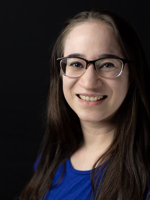Types of Clients
Children, Adolescents, Adults, and Families
Training
Dr. Kapoor is originally from Illinois and graduated from the University of Illinois in Urbana-Champaign with a Bachelor’s degree in Molecular and Cellular Biology and South Asian Studies. She then went on to earn a Master’s in Public Health from Boston University where she concentrated on International health and Maternal and Child Health. During her time in Boston, she worked on a research project developing programs to prevent maternal depression in immigrant Haitian mothers. She then worked with local NGOs in both Kenya and India on public health measures. Dr. Kapoor then attended medical school at Lake Erie College of Osteopathic Medicine in Pennsylvania. After completing medical school, Dr. Kapoor was eager to return to the Midwest and she completed her residency in Psychiatry at the University of Wisconsin Hospital and Clinics. She then completed a fellowship in Child and Adolescent Psychiatry where she was the chief resident, at the University of Wisconsin Hospital and Clinics.
Experience
Dr. Kapoor has previously provided psychiatric care in a variety of settings including inpatient, outpatient, residential care, and psychiatric emergency room treatment.
Dr. Kapoor continues to enjoy teaching and is a Clinical Adjunct Assistant Professor in the Department of Psychiatry at the University of Wisconsin School of Medicine and Public Health.
Treatment Specialties
Dr. Kapoor provides psychiatric evaluation and treatment for individuals of all ages. Her skills include diagnosis, medication management, limited psychotherapy, and coordination of care with other treatment team members including therapists and primary care providers. Dr. Kapoor has a special interest in cross cultural and global psychiatry and enjoys working with diverse populations. She is also proficient in Hindi.
Techniques
Dr. Kapoor conducts psychiatric evaluations for diagnosis and treatment planning. After her initial evaluation, her primary focus is on safe and effective medication management. Brief therapy techniques employed by Dr. Kapoor include cognitive-behavioral, interpersonal, supportive, solution-focused, and psycho-educational approaches.
Professional Organizations
Dr. Kapoor is Board Certified in Adult Psychiatry, and Board Certified in Child and Adolescent Psychiatry by the American Board of Psychiatry and Neurology. She is a member of the American Academy of Child & Adolescent Psychiatry, Wisconsin Council of Child and Adolescent Psychiatry, and the American Psychiatric Association.
What is a D.O. (Doctor of Osteopathic Medicine)?
In the United States, all physicians earn their professional doctorate in the form of either M.D. or D.O. Osteopathic medicine was originally founded in 1874. It holds that treatment should be guided by the idea that the body is a self-healing unit of mind, body, and soul where structure and function are intimately related. http://www.osteopathic.org
* Both D.O.s and M.D.s typically have a four year undergraduate degree prior to medical training.
* Both D.O.s and M.D.s take the MCAT, followed by a rigorous application process; both then spend four years in medical school.
* Both D.O.s and M.D.s choose to practice in a specialty area of medicine and complete a residency program (often shared between D.O.s and M.D.s) ranging from 3-7 years.
* Both D.O.s and M.D.s perform surgery, deliver babies, and prescribe medications; both use the same tools, treatments, and technologies of medicine to treat patients.
* D.O.s receive extra training and certification in the musculoskeletal system, called Osteopathic Manipulative Treatment (OMT). This is both an evidence-based and philosophically-based practice that involves the use of the physician's hands to diagnose illness and to encourage your body's natural ability to heal.



